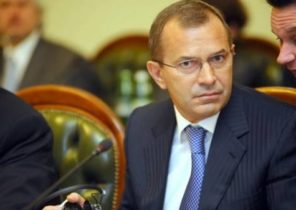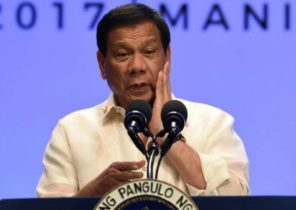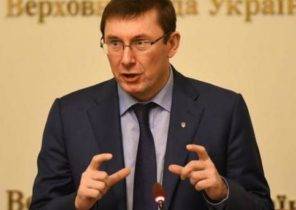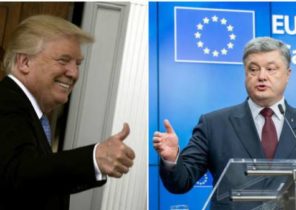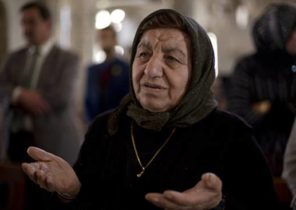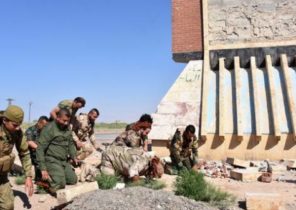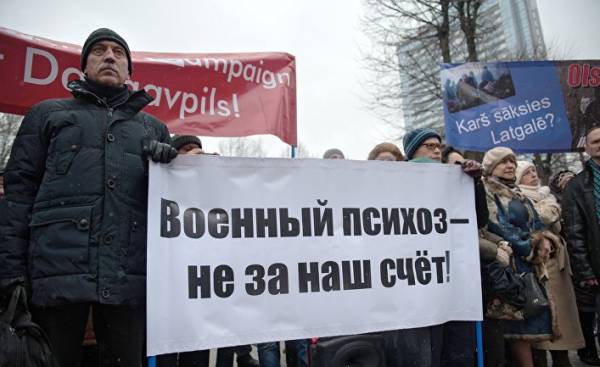
In the “Baltic forum” (BF), which was held on may 27 in Riga, House of blackheads, attended one of the most prominent Russian experts on issues of world economy and international politics, academician of the Russian Academy of Sciences (RAS), doctor of economic Sciences, Professor, President of Institute of world economy and international relations, Vice-President of the International Union of economists Alexander Dynkin. Aren’t questioned him on the subject of the current 22-th conference of BF “Crisis in relations between Russia and the West escalates. As an expert community can help you with?”
NRA: the conference painted a pretty dramatic picture of a new cold war, nuclear arms control is destroyed, the world is approaching a dangerous point… But a clear definition of the reasons for this situation and justify why the world was in that position I received. What and why have brought relations between the West and Russia in the current state?
Alexander Dynkin: the Reason is that at a time when Russia was a democratic revolution, on both sides there were very optimistic expectations. In 1990, the Paris Charter on new Europe was signed by 32 European States as well as Canada and the United States. It proclaimed peace and happiness in Europe.
But then the events developed in a completely different scenario, because, first of all, in the United States and in some countries of Western Europe began the celebration of the victory in the cold war. And this approach — Russia — the losing party, and the West — the winner — suddenly everything changed… For example, Poland… Poland was given strong support — writing off of loans, staff training, provision of cheap loans… Russia didn’t even see the corner of my eye, because Russia considered the losing party and said we won’t save Russia, let Russia get out myself.
Thus, Russia has gone through very severe transformational crisis. He was associated not only with the collapse of the state, the political system, but with the change of borders. At the same time, there were two waves of NATO enlargement. We had no idea, did not foresee that it would be so hard. Then in 1999 were the Yugoslav crisis… It was the first military intervention after the war, during which NATO troops are pretty aggressive bombed Belgrade… You do realize that Serbia is close to Russia the state historical and religious aspect. Of course, it caused in Moscow, so to say, strong emotions.
After the United States withdrew from the anti-missile defense. However, it was subsequently the desire to create a common missile defense. In the end, the Americans rejected it (I do not mention individual parts)… But in 2007, Vladimir Putin, seeing the situation and wanting to warn the West at the Munich conference said a strategic retreat over Russia (if you count 1987 — the retreat lasted 20 years), Russia returns to European politics, Russia is returning to world politics. Have not heard it. Began to prepare the third wave of NATO expansion in Georgia and Ukraine. At the Budapest summit, Vladimir Putin once again said that our point of view: it is unacceptable that these countries should remain neutral. Otherwise, as they say, fasten your seatbelts. It again did not want to hear. And so happened what happened.
See, Russia, of course, you can blame the fact that we have a very heightened perception of threat. It is the impact of history and culture. According to the latest data, during the Second world war, we lost not 27, and 42 million people, so the threat perception is very keen. And so… that, such situation.
But in the West nobody wants to take it seriously. Thinking about expanding their geopolitical space.
At the conference, BF was ascertained that in comparison with last year the situation has worsened. But we do have seems to be a strong and influential international organization. Besides, the situation is not new. Why isn’t she subjected to intense international settlement? She may be best as she is? Maybe it’s all some kind of global “business project”?
You know, I’m a student of academician Yevgeny Primakov, and he said that the measure of conspiracy is a measure of misunderstanding of the situation. No business plan, no conspiracy or world behind the scenes here. There are the interests of States. And the Americans wanted to weaken Russia as the second largest nuclear power in the world. That’s the whole story! One of the outstanding thinkers in this field, Henry Kissinger said: the demonization of Russia is not a policy, and absence policy. And if the political elite of the United States has not seen another policy, if you do not understand what it can bring, all the results were a foregone conclusion.
— Political scientist, Director of the Carnegie Moscow center’s Dmitri Trenin in his book “Should we be afraid of Russia?” (2016) writes that Europe should not fear a strong Russia, and should be afraid of weak Russia.
— In principle, I agree with that assessment. After all, a weak state distracts their citizens from the deteriorating living conditions of some external enemy. But Russia is strong. Russia is rich… But as a concept I agree with this look.
— What is at the same level of perception should be afraid of Russia itself?
— Can’t say what could be afraid of Russia… of Course, a serious challenge to Russia is terrorism. And to combat it, of course, requires international cooperation. Russia is against the proliferation of nuclear weapons, against their falling into the hands of terrorist organizations. Russia that were concluded an international agreement on cyberspace, placing nuclear weapons in Space… For the preservation of the system of treaties on tests of strategic offensive arms that expires in 2021. I’m not saying that Russia is afraid because it’s the stuff from Russia and around the world.
— And what, in your opinion, now the European context? Taking into account the elections “brecitos” etc. I ask this in part because that allowed an artificial origin of this conflict, which you said was a crisis. In order to conceal its own weakness. You said yourself that the reference to an external enemy for this good. Moreover, because there is no proper script resolve their own problems.
— Maybe some political circles in Europe argue thus. However, I don’t think they dominate. What you say about the crisis not only in Europe, about the crisis in the United States, the crisis associated with the disappearance of the existing social contract… it was All based on the assumption that each generation will live better than the previous. Today, the contract is destroyed… In the US GDP per household has not increased over the last 20 years. In Europe the situation is even worse. Because it was a very slow, very drawn-out from the global recession of 1997 and 1998. And they gain the power of the populist party.
Today we can say that there are two answers on the way out of this crisis. The isolationist response of the Anglo-Saxons — brexit. And the European response (lesion populist parties in France and the Netherlands) continental Europe chooses what to do with strengthening economic integration, with the development of world trade… I see the situation.
But while the sanctions are still ruining the life of Russia…
— I would say that half of our problem is not the most effective model of development, approximately 30% (problems) due to the fall in hydrocarbon prices and about 20% with the sanctions. The sanctions should be linked to some positive manifestations. Sanctions have removed foreign competition. Sanctions are forcing us to provide such important attributes of an independent state, as an independent payment system that we create. Sanctions — an incentive to create it. We do exist in a completely open economy, and foreign competition have depressed the development of our domestic sectors.
— I spoke not so much an economic as a political influence. In my opinion, the sanction is also a threat. The presence of both internal and external threats.
— Of course, should pay for everything. Of course, we have a very heavy risks. But mostly I still think excessive regulatory pressure on business taxes.
Another important limiter of growth — the quality of human capital. As for the lifetime, here we have great chances there. Data from the world health organization indicate that by this measure we are at the 122nd place in the world.
Our citizens and companies today perceive the crisis as an inevitable characteristic of a market economy is evil. They maneuver, reducing costs, Everyone decides how to save. But I would say that it is impossible to save the expense of children’s education and health.
Unfortunately, geopolitical risks increase spending on defense and security. So, real expenditure on education and health are reduced. Of course, this will not affect the future growth of human capital. However, while we cannot exclude the possibility of conflict, which can be involved regional and even global dominant superpower. While not the forefront of transnational challenges and threats: international terrorism, which is seeking access to weapons of mass destruction; religious and ideological extremism: cross-border crime…
And therefore not in our interests to remain under the fence have occurred in the last 70 years of the greatest transformations. Long-term effective international development will depend not only on military muscle, but from our abilities of innovative development, quality of life and its level, your ability to build great relationships with other big players.
— How real attempts to exclude Russia from the European context? For example, it is argued (Svetlana Alexievich and Alexander Tsygankov) that the attitude of the Russian anti-Western and expansionist. What are these insights? Especially if we all do not seem to want war.
— You know, it is more a philosophical question. I want to say that Russia has changed your perspective on Europe. If, for example, in the late 80’s, in 90-e years we said we should build a common European home, the European choice of Russia is irreversible, now some expansionist manifestations led to a change in assessment. Today nobody says about the European future of Russia. Europe is perceived as a neighbor, not as a model of behavior. I don’t know whether this is good or bad. But the real attitude is the same.
— We are afraid that Russia here-here will attack Latvia…
— I have this conspiracy theory take a very skeptical. Of course, in the Baltic States there are some political groups that their political survival, their existence on the political scene based on the demonization of Russia and the intimidation of voters by Russian threat… In my perception, that’s absolute nonsense. In Russia there are no idiots, and no one is going to test the hardness of the 5th paragraph of the NATO Treaty.
— How far, in your opinion, Europeans feel, who are Russian? And how can the level of sensation, affect policy?
— I believe that mentally Russia is best felt by the Germans. Because of the tragedy in its history. The poles, in my opinion, also have a very strong historical memory. We have created the Commission which was engaged in the complicated, controversial history issues. The Commission has worked quite positively, but her work interrupted. Seem to me important this kind of meeting as the “Baltic forum”, where participants from Russia are allowed to Express their point of view and it is written on which to reach audiences in Europe, including the Baltic States. I have in the Baltic States a lot of friends, and none of them believes that Russian tanks will be tomorrow in Riga or Tallinn. This fiction of these politicians who are alien to moral purity.
— That should make all parties to the theme of this conference BF has ceased to be important?
— You know, the cornerstone of European security today is Ukraine. The Minsk agreement is mainly produced in Germany (with the participation of Angela Merkel). The current regime in Kiev is unable to fulfill it. I think in order to start the implementation of the political clauses of the contract “Minsk-2”, this mode need to pressure. Then the situation is normalized. Otherwise — why it was necessary to sign this agreement if it fails?
— What is the “Russian question”?
— I think the “Russian question” is invented not in Russia, but rather in the West. Russia is a big, independent country with its not easy, difficult history… Russia is now quite painful like building a new society, a new economy… I have already said that the perception of threats is almost our national feature. We are extremely attentive to external threat to our security. Today, when on the basis of the former strategic aviation of the USSR in the South of Estonia deployed air force, NATO, and the modern fighter jet can fly from there to some areas in St. Petersburg for three minutes, it can not cause a reaction.
— What is the role of Latvia? Whether we are its possible roles? Given the location of our state and all the rest…
— I partially answered your question during the conference. I believe that Latvia due to its historical, cultural and geographical conditions as it is the capital of the Baltic sea area, the Baltic world, the Baltic rim. And, in my opinion, in Riga less bravura politicians, such bravura statements which we hear, for example, from Vilnius, a little less — from Tallinn.
But it’s sad that the Baltic States chose the role of the frontline States. It is very upsetting. Understand that building bridges is more difficult than to blow them up.
But this is politics in the short term. In politics for the long term Latvia from my geography’s not going anywhere. Latvia should be able to overcome themselves and become a bridge between Russia and Europe. It is the historical mission of Latvia, is the key to future prosperity and peaceful life of Latvia. If the political elite of Latvia will understand it, it seems to me that all of us will become easier.
— So Janis Urbanovich was a specific reason to scare us at the conference, saying if here in armored personnel carriers coming alone, while others decide to attack them, it is possible that some of them will be the winner, but… then we will no longer be?
— He’s right. Because in the overall picture of the situation if Latvia has agreed to the role of a frontline state.

